Like the title says. Much of the material on this blog is archival, historical, obsolete, etc. Look at the dates of the posts to see where I was in my thinking or writing at the time. If you use old posts to ascribe views to me, please be sure to point out the dates of the posts. Also, much of the material on this blog is interesting, if I do say so myself, regardless of the foregoing, and some of it is fairly recent or otherwise relevant.
Currently this blog is kinda archival
March 27th, 2015 — Space
Extra material for WhoWhatWhy “Barrett Brown Sentenced to 5 Years, After Facing More Than a Century” article
January 22nd, 2015 — Activism, Agitprop, BarrettBrown, DFW, Digital Ideologies, ExtraMaterial, Texas, Writing
(5 years and 3 months, to be precise.) Okay: Material the media outlet cut from my piece, plus bits of context:
Brown spoke with WhoWhatWhy earlier this week from jail to emphasize the dishonesty with which the authorities have prosecuted him. He referred to his sealed detention hearing, saying the FBI’s agent Allyn Lynd testified under oath that laptop evidence proved the writer admitted to SWATing (placing false 911 calls to get locked-and-loaded police commandos out to a mark’s home). Brown said that not only did Lynd get away with that false allegation—which was at least explicable in that it served as a chief reason the judge denied bail—but the agent also got away with the weird claim that the defendant had lived in the Middle East.
“These people, these prosecutors, these FBI agents have blatantly lied so much,” Brown told us. “They aren’t rookies; these are people who have been around for a long time. So what that tells me—what that should tell everyone—is that they don’t lie for fun; they do it because it works. And the question is, Why does it work? And how bizarre is it that these things work? There doesn’t seem to be any negative feedback to prevent an FBI agent from lying on the stand.”
[…]
The prosecution throughout has twisted words to manufacture a case against his work and, in so doing, a case against what 21st-century journalism stands to become.
Brown, some of whose first writing sales were to America Online during its days as an Internet service provider, has long championed the decentralized, archival Internet as a better means of knowledge-production than the hierarchical media ecosystem where authors and pundits can lie persistently without consequences not unlike his prosecutors. After all, the use of hyperlinks—the primary controversy in his case—allows scrupulous authors and readers to cross-check data and call out errors in great detail.
Once Brown heard of Anonymous and WikiLeaks in 2010, he quickly realized how his crusade could be amped up with access to top-notch secrets and new ways to collaborate digitally. Soon he was giving more and more interviews to the traditional media—some of which the Department of Justice trotted out in court last December—explaining his political ideas and findings about the authorities’ information warfare projects and techniques. Meanwhile, in chat rooms and on social media, he was showing others how to mine state-held business registrations, trademark filings, and press releases so they, too, could turn Anonymous’s hack-leaks into actionable news and analysis. His audience grew and grew.
The government didn’t like that at all. Prosecutors let their motive slip during a 2013 hearing, as first reported by WhoWhatWhy. That was when the Department of Justice made a failed attempt to prevent Brown, while his case was ongoing, from criticizing anyone in the government whatsoever. (They did succeed in gagging him and his lawyers, for several months, from speaking out about his legal battles.)
[…]
Despite the Department of Justice’s hammering of him, Brown has remained steadfastly defiant. Reading his allocution, he told his judge, predictably, “I hope to convince Your Honor that I sincerely regret some of the things that I have done” but added with trademark dry humor: “Like nearly all federal defendants.”
Extra material for WhoWhatWhy “Barrett Brown Sentenced to 5 Years, After Facing More Than a Century” article by Douglas Lucas is licensed under a Creative Commons Attribution-NonCommercial-ShareAlike 3.0 Unported License. It does not affect your fair use rights or my moral rights. You can view the full license (the legalese) here; you can view a human-readable summary of it here. To learn more about Creative Commons, read this article. License based on a work at www.douglaslucas.com. Seeking permissions beyond the scope of this license? Email me: dal@riseup.net.
Footnote re for-profit InnoCentive
July 10th, 2014 — Footnote
Proof of InnoCentive’s for-profit status was found via Delaware business record search. it’s an interactive component inside the page. There is no link readily available. Turn off Greenwald publicity and learn to conduct business record searches.
Footnote re in all practical certainty
July 10th, 2014 — Footnote
Had he donated the Bona-Fide Gift shares to the PayPal 14, Omidyar *might* have risked unpleasant consequences such as civil damages, but unpleasant consequences would not have interfered with his authority to do it.
Why only “in all practical certainty” could he have gifted those shares? Well, Omidyar, like any shareholder, had the authority to give his personal property (for that is what the Bona-Fide shares are) to whomever–unless the corporation restricted HIS authority in some way AND so secretly than no one in the world–from the SEC to all the NSFW journalists going after him–has ever heard about it. In other words, if a bunch of eBay millionaries went up to one of the world’s most powerful people/multi-billionaires and somehow persuaded him to agree, secretly, not to use his personal property as he saw fit, then yeah, my argument isn’t solid in all epistemological certainty. This is getting to the point of saying the far side of the Moon just might be made of green cheese. Ask anybody on a corporate board or a lawyer who’s fought over shares ownership (and I have asked both plus others) about this, they’ll laugh. It’s wildly implausible that eBay underlings secretly persuaded their superior, Omidyar, not to use his personal property as he saw fit. It would be like one going up to him and saying, “Excuse me, bodyguards, I have to tell my superior something. Hey, Pierre, shh, it’s a secret, but you must buy only blue Corvettes, not red ones. Agree?” Good luck with that.
Footnote re requiring
July 9th, 2014 — Footnote, Uncategorized
From the book WikiLeaks: Inside Julian Assange’s War on Secrecy by David Leigh and Luke Harding. Leigh was the Guardian’s executive editor who dealt with Assange at the time and can’t handle a passphrase, but who has certainly done a lot of business:
(Keller’s excuse is full of shit but that’s another story.)
Footnote re ways
July 9th, 2014 — Footnote
The recent, truly helpful leak of NSA XKeyscore code, which assists pro-freedom hackers in building better defenses against surveillance, was NOT a Greewald report.
Footnote re “in sync”
July 9th, 2014 — Footnote
Julian Assange was arrested in sync with his organization’s world-shaking release of State Department cables. In sync as correlation is fact, check the calendar. In sync as causation? Arguing that would require first understanding the (historically predictable) “official” version of the causation: The arrest was due to some combination of surprisingly empty sexual misconduct allegations that turned into this:
But arguing causation is not necessary, for “in sync” comes from the word synchronicity, which means “together in time”: correlation. The word has an exact meaning, and that is the meaning I am using.
Extra material for Salon George W. Bush painting article
April 7th, 2014 — Biz, Culture, DFW, Politics, Publicity, Writing
Today Salon published my and Amy O’Neal’s new article, “Portrait of a failed president: Inside the art of George W. Bush.” As is usual in this industry, they made some changes. So, some extra text and images here for you.
Below are the images buried in the article’s slideshow. (Except for Felipe Calderón, whose portrait I took a picture of, the images come from TheBushCenter’s Flickr.)
While Vladimir Putin’s false-flag bombings of his own Moscow remained in, George H.W. Bush’s connection to the JFK assassination came out. Here’s that text:
He once said he didn’t remember where he was when John F. Kennedy was assasinated, which is like saying you don’t remember where you were when Apollo 11 landed on the moon or the twin towers came down. As journalist Russ Baker’s thorough book Family of Secrets reveals, Poppy was actually in Dallas the day before and probably the morning of November 22, 1963, when military intelligence figures led Kennedy’s motorcade to its fate. Poppy was also a friend of George de Mohrenschildt, Lee Harvey Oswald’s handler, and closely tied to Allen Dulles, whom JFK removed from the CIA directorship. Not to mention Poppy’s ties to Texas oil barons whose tax breaks JFK wanted to end. Draw your own conclusions about this “gentle soul.”
Also I want to note that Bush raised more than half a billion dollars for the complex. Presidents raise money for their libraries while in office (as well as after), which means the fundraising is an opportunity for influence to be exerted. Even foreign leaders can give sitting presidents secret donations for their libraries.
Extra material for Salon George W. Bush painting article by Douglas Lucas is licensed under a Creative Commons Attribution-NonCommercial-ShareAlike 3.0 Unported License. It does not affect your fair use rights or my moral rights. You can view the full license (the legalese) here; you can view a human-readable summary of it here. To learn more about Creative Commons, read this article. License based on a work at www.douglaslucas.com. Seeking permissions beyond the scope of this license? Email me: dal@riseup.net.
The Value of the Stratfor Leak
November 21st, 2013 — Activism, Culture, Digital Ideologies, JeremyHammond, NYC, Politics, Publicity, Stratfor, WikiLeaks, Writing
On November 15, hacktivist Jeremy Hammond was unjustly sentenced to ten years in prison for, among other actions, hacking confidential emails out of the Austin-based private intelligence firm Stratfor. WikiLeaks published these emails as the Global Intelligence Files. I’ve been researching them intensively for more than a year, and have published two articles on my research at WhoWhatWhy, one on General David Petraeus and one on the Drug Enforcement Administration’s Special Operations Division seeking White House permission to kill Mexican drug lord El Chapo. That second also includes a lot of my research into Stratfor’s informants and clients.
The day of Jeremy’s sentencing hearing, I gave a speech at Foley Square outside the courtroom and some interviews about the value of the Stratfor leak. The leak will continue to benefit researchers for years and years. Journalist Chris Hedges (Wikipedia), journalist Alexa O’Brien (Website, Twitter), and defense attorney Jay Leiderman (Website, Twitter) also spoke at Foley Square.
If you want the short version, check out this interview of me conducted by Jeff Durkin (Twitter) of We Are Change Connecticut (Website, YouTube). It was right after the speech. The interview is about seven minutes long and came out really well.
If you want the long version, here is a video of all four speeches and more by Small Affair (Twitter, Tumblr, Donate, Occupy the Stage). My part is from 36:00 minutes to 49:30. Small Affair also took the picture at the top of this post. Below the video is the prepared text of my speech.
This morning we saw young but longtime hacker and political activist Jeremy Hammond unjustly sentenced to ten years in prison for, among other actions, hacking confidential emails out of the Austin-based private intelligence firm Stratfor, the leak of which WikiLeaks is now publishing. The five million-plus emails Jeremy provided to us through WikiLeaks span 2004 to 2011 and consist of internal and external correspondence, files, and records of the firm’s analysts, spies, executives, writers, and other employees.
I want to talk for a few minutes about why what Jeremy did has been and will continue be so beneficial to us—that is, I want to talk about the value of the Stratfor leak, which is Jeremy’s contribution to what we can call the historical record or humankind’s knowledge repository or simply just the Internet. For more than a year, I’ve been intensively researching the complete cache of Stratfor documents in WikiLeaks’ possession. I’ve published two in-depth articles at WhoWhatWhy using my research, have a third coming out soon there, and many more in the works.
When WikiLeaks began publishing the Stratfor leak, which it calls the Global Intelligence Files, much of the reaction from the US mainstream media was dismissive. The Atlantic published an article the same day WikiLeaks announced the leak, titled “Stratfor Is a Joke and So Is WikiLeaks for Taking It Seriously.” The Atlantic writer, of course, did not read the five million-plus emails. Rather, he was probably acquainted with Stratfor’s free email newsletter reports and media appearances and was itching to discredit WikiLeaks and its source, who we now know was Jeremy. But what the Atlantic writer was acquainted with was just the surface of Stratfor.
The firm does so much more. In the 2004 to 2011 time span the leak covers, Stratfor provided training and created custom intelligence products—reports, predictions, assessments—for big corporations such as Hunt Oil, National Oilwell Varco, Parker Drilling, Lockheed Martin, Dow Chemical, and for government arms such as the Defense Intelligence Agency, the Department of Homeland Security, the US Marines, and many more. These people weren’t reading the free email newsletter reports. They were buying intelligence products such as Stratfor’s Yemen attack database, in which Stratfor catalogued incidents of violence in Yemen with precise information such as GPS coordinates. They were, in Emerson Electric’s case, paying more than a hundred and fifty thousand dollars a year for phone and email access to Stratfor employees who would brief them on political, economic, and security factors affecting their operations. So much of the information Stratfor was providing these clients is available to us now thanks to Jeremy, and most of it hasn’t been researched yet.
National security journalist Joshua Foust said this week that Stratfor isn’t that much different from a private investigator. P.I.s don’t have the clientele I just listed. They also don’t have Stratfor’s informants, who included Israeli Prime Minister Benjamin Netanyahu, Mexican diplomat Fernando de la Mora Salcedo, and DEA supervisor William F. Dionne, whom I interviewed and who provided Stratfor information off JWICS, a top-secret US government computer network. Much of what these informants were telling Stratfor is available in the leak, again thanks to Jeremy, and most of it, again, hasn’t been researched yet. So we still don’t yet know the full extent of Jeremy’s contribution.
Joshua Foust also said this week that the Stratfor emails “weren’t surprising” for people in the know. That’s false. And he said “weren’t surprising” as if the leak is already over. We’ve barely scratched the surface. The mainstream media in the US doesn’t want to research the information I’ve been describing, they’re not familiar with it, they don’t care. They bash Jeremy’s contribution on the one hand, but on the other hand, the New York Times (as documented by the NYT Examiner), NPR, and other news organizations collaborate or share information with Stratfor behind the scenes. That’s the US mainstream media for you, hypocritical. Turn them off.
There are easily decades’ worth of research remaining for the Stratfor documents. Not only are there more than five million emails, but many of them have PDF attachments of up to hundreds of pages each. Examples of these attachments include intelligence bulletins from the Drug Enforcement Administration’s El Paso Intelligence Center, Texas Department of Public Safety threat assessments and situation reports, and intelligence products created by Department of Homeland Security state fusion centers. There are even intelligence products created by Stratfor competitors whom the firm was studying such as Total Intelligence Solutions, the Institute of Terrorism Research and Response, and Oxford Analytica. So Jeremy didn’t just provide us with information from Stratfor, but also from other private intelligence firms and government intelligence organizations. Again, most of this material hasn’t been researched yet.
But here are some of the greatest hits of what has been uncovered so far.
The previously unknown Trapwire surveillance system was one of the biggest Stratfor revelations. This company with CIA ties developed software for CCTV cameras that identifies or supposedly identifies suspicious behavior and manages and cross-references suspicious behavior reports from different locations and time periods. It also integrates information from license plate readers and other surveillance inputs. Trapwire has been deployed in DC, Seattle, LA, Las Vegas casinos, Atlanta, the London Stock Exchange, and right here in the NYC subways, 500 cameras’ worth according to Stratfor in 2010. If someone “sees something, says something” about you in a New York subway, your “suspicious activity report” possibly goes to TrapWire. Thanks to Jeremy, we better understand mass surveillance, which is crucial, because giving the people who brought us mass incarceration, more than two million people behind bars in the US, the technology to incriminate anyone, whether rival politicians or ordinary citizens, is obviously an immense threat to freedom.
My work at WhoWhatWhy on the Stratfor documents, thanks to Jeremy, includes an article about General David Petraeus, whom Stratfor shows was probably having an extramarital affair prior to previously known, which besides possibly being a military offense, suggests his mistress Paula Broadwell, who was an intelligence officer, may have had him in her crosshairs for a long time. That makes more sense of Petraeus’s downfall from the CIA and gives a better picture of internal government struggles. Another article of mine is on the Drug Enforcement Administration’s Special Operations Division seeking White House permission to assassinate Mexican drug lords. That’s a picture of the increasing militarization of law enforcement and the possible broadening of US assassination policy to merge the war on drugs with the war on terror–a push for a so-called “narcoterrorism” policy. Later this month WhoWhatWhy will publish another Stratfor article of mine of Mexican military presence in the US and US military presence in Mexico. Thanks, Jeremy.
Another contribution of his are the revelations in the media outlet Narco News about the US and Mexican governments easing the path for certain cartels to traffic drugs into the country. Instead of improving the Mexican economy so poor people don’t join cartels or legalizing drugs, the US and Mexican governments pick favorites among drug cartels in hopes that a preferred balance of power among them will reduce the drug war violence. Meanwhile they arrest people for smoking pot. This is a picture of what the drug war really is. And I’ve seen in my research that even Congresspeople are listening to Stratfor on so-called narcoterrorism issues.
Thanks to Jeremy, we learned private intelligence was looking for connections between Alexa O’Brien’s campaign finance reform group US Day of Rage and Islamic fundamentalism, which of course carries the threat of Alexa being smeared as a terrorist. That particular Stratfor memo was cited in her and Chris Hedges’ court case against indefinite detention that went to the Supreme Court. We also learned thanks to Jeremy that the Department of Justice has a sealed indictment against Julian Assange of WikiLeaks, indicating the severity of the US government’s efforts against journalists and the Internet. This revelation was cited by Assange in an affidavit to Swedish police.
There are plenty of other revelations in the Stratfor documents. Those are just some of the greatest hits. You can get involved researching the Stratfor documents yourself. Look them up on the WikiLeaks website, where there is a search engine to look through them.
You might say, Okay, so we grabbed a few headlines, and maybe a few legal documents benefitted, but what’s the use, what does it all add up to? We know Jeremy’s legal case was unjust. The FBI knew Stratfor was being hacked for weeks and did not stop it, and entrapped Jeremy through their informant Sabu. Judge Preska denied Jeremy bail wrongfully. And the sentencing is irrational: if Jeremy had broken into the Stratfor building in Austin and walked off with hard drives, he might have a prison sentence of only about a year. There were other actions he did, but since the US government is cracking down on the Internet and journalists and their sources, he’s stuck with a much more severe sentence. So now he’s in prison. Are the news headlines, past and future, worth that? He says so, but are they really?
Yes. For one, these revelations are examples of why more and more people are ceasing to take the US government and traditional politics seriously. The fewer people trust in the Democratic Party, the better. People who grow disgusted with the System as a result of revelations such as these will begin to look to themselves and solidarity for solutions. Solutions such as the commons or mutual aid. Instead of trying to reform or overthrow the government, we can simply practice governance. Internet technology is a tool that makes mass collaboration for mass self-govenance possible, which is something Heather Marsh writes about, if you know her work. If not, read it.
The best way to look at what Jeremy did is to see it as a permanent contribution to humankind’s knowledge base, our knowledge base, the Internet. Think about checking your phone to look something up. We all know what it’s like to look something up online and find an answer, and we all know what it’s like to feel grateful when we find an especially good answer. That’s the sort of gratitude we should feel toward Jeremy. He improved our knowledge; he’s given us better answers, and they are answers about some of the most important things: what the powers who try to control us are doing. With better information, we can make better decisions and govern our own lives.
Fundamentally, Stratfor is a profit-driven business. It influences big business, government, and the media. It’s an organ of the powerful, but despite its power over all our lives, Stratfor’s employees are not vetted by the people and it’s not open to Freedom of Information Act requests. The knowledge it held between 2004 and 2011 was locked up behind closed doors.
But Jeremy freed it. For that, journalists owe him hard work researching the Stratfor documents, and we all owe him our thanks.
That evening, Vivien Weisman (Twitter) interviewed me about Barrett Brown and my Stratfor research to include in her upcoming documentary The Reality Wars, which is about hacktivists.
Also that evening, I was interviewed on Lorax Live (Website, AnonOps Radio, Twitter, Facebook) about the value of the Stratfor leak. The audio is not online yet, but I will update this page when it is.
The Value of the Stratfor Leak by Douglas Lucas is licensed under a Creative Commons Attribution-NonCommercial-ShareAlike 3.0 Unported License. It does not affect your fair use rights or my moral rights. You can view the full license (the legalese) here; you can view a human-readable summary of it here. To learn more about Creative Commons, read this article. License based on a work at www.douglaslucas.com. Seeking permissions beyond the scope of this license? Email me: dal@riseup.net.
Patriot and Mailman at The Chat Room, 9 March 2013
March 12th, 2013 — Culture, DFW, Friends, Music, Texas
Two awesome local bands played here in Fort Worth last Saturday at The Chat Room (Twitter).
“Shake Me” by Patriot
View/download as 1920×1080 .mp4
When I first met Jake Paleschic, the leader, singer, and songwriter of Patriot, he was reading Flannery O’Connor, ’50s and ’60s author of tough, serious short stories and two intense novels. Patriot is just as real as her work. Gritty, not unlike James McMurtry, Jake’s music makes you care — he and his band play, everyone stops to listen. The rest of the band is up to the task of accompanying him. Austin’s experience on classical guitar has trained his right hand to give every single note on bass its own sound, rather than the stream of identical notes you normally hear. Tyler’s fills on lead guitar are as thoughtful as he is, adding to the music like a voice. And Peter’s drumming feels personal, a genuine feel, where so many drummers just bang away mindlessly. I always want to listen to these guys.
- Jake Paleschic — guitar, harmonica, vocals
- Tyler Brown — lead guitar
- Austin Kroll — bass
- Peter Wiernga — drums
Set list:
- Bullet
- Ballad of Joey Gorman
- Speak Momma
- Shake Me
- Long May I Sleep
- Day Moon
- Slow Love
- Brimstone Blues
“Seth Met a Girl” by Mailman
View/download as 1920×1080 .mp4
Mailman is really fun. Austin has free range for his talent, and Jon sings from his heart. I’m eager to hear “Suburban Angst” recorded, perhaps their catchiest song. Read more about Mailman on the excellent site FortLive.
Mailman (Facebook):
- Jon Phillips — guitar, vocals
- Austin Kroll — guitar, vocals
- Reece Presson — bass
- Robby Rux — drums
Set list:
- Nevermind (It’s Not So Bad)
- Working
- Suburban Angst
- Seth Met a Girl
- Slug
- Black Dress
- Terrible People
- Hard Way
Ralph White also played solo that night, as did someone else — if you know this other person’s name, leave it in the comments. And if you know the name of the original artist for the song “Hard Way,” leave that in the comments.
(Thanks to Fernando Ochoa for help with some of the photos.)
Patriot and Mailman at The Chat Room, 9 March 2013 by Douglas Lucas is licensed under a Creative Commons Attribution-NonCommercial-ShareAlike 3.0 Unported License. It does not affect your fair use rights or my moral rights. You can view the full license (the legalese) here; you can view a human-readable summary of it here. To learn more about Creative Commons, read this article. License based on a work at www.douglaslucas.com. Seeking permissions beyond the scope of this license? Email me: dal@riseup.net.


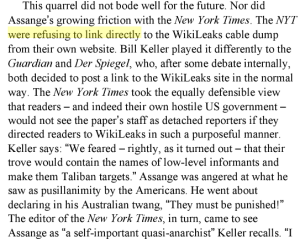

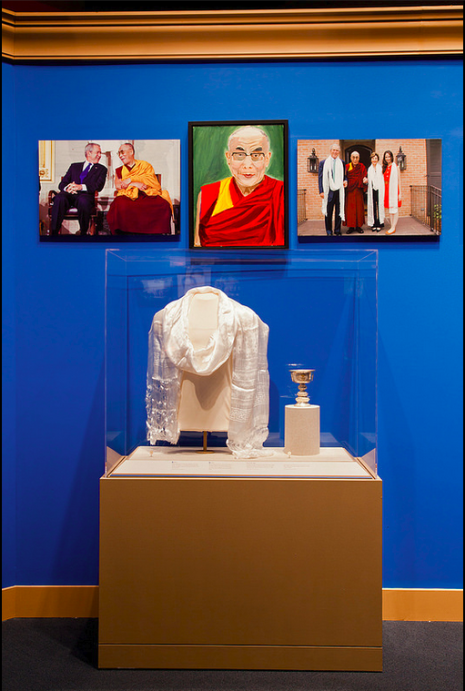
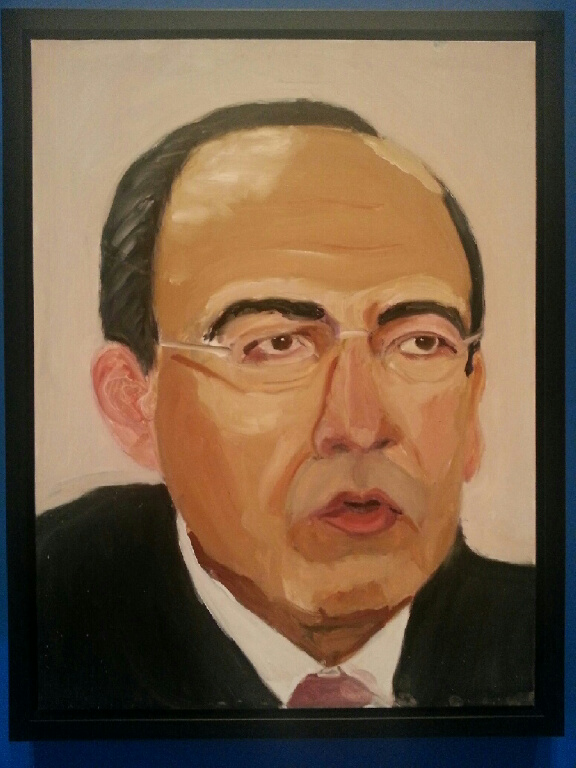


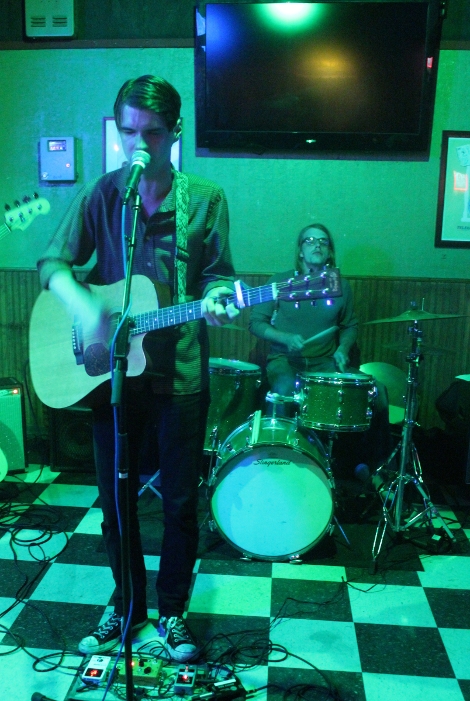
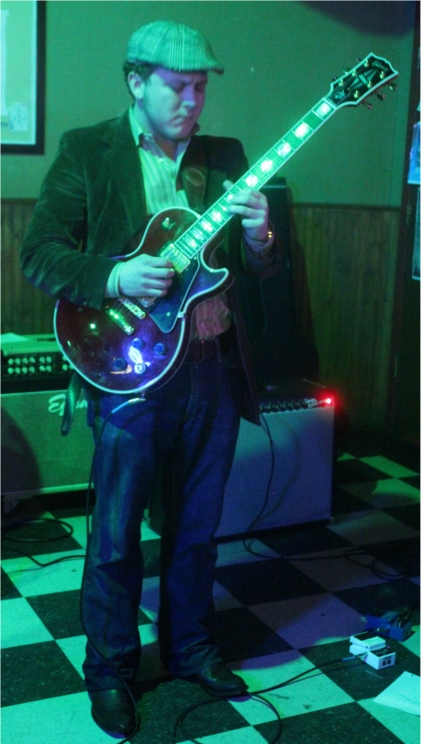
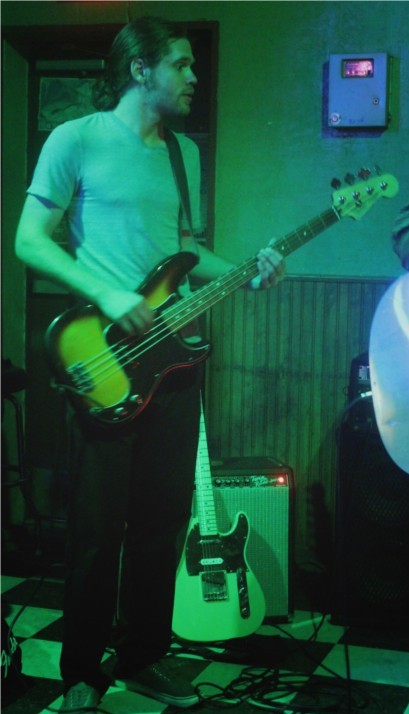


 Twitter:
Twitter:
Join the conversation